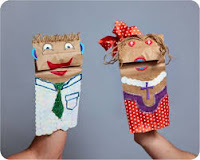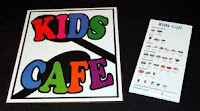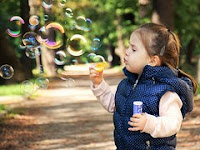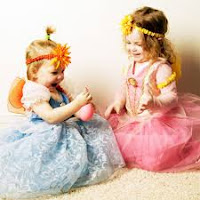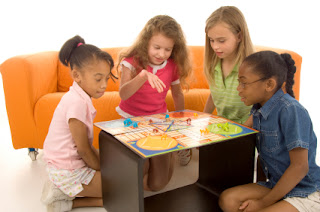Summer evokes in me wonderful memories of freshly mowed grass, a breeze caressing my cheeks as I sway in a hammock, the feeling of lassitude. And Then.... The peace is shattered by the words every parent dreads: "I'm bored! There's nothing to do!" Every parent wonders as summer progresses, "What am I going to do with the kids?" Don't give into "The Whine" by plopping kids in front a screen, be it a tablet, TV, or video!
So how can we cope with the downside of Summer Break? I don’t have all
of the answers, but I can speak from experience as to how I handled the boredom
issues and stimulated Creative Thinking in my own children.
When my kids were young, I kept a
running list that I called,
You can write it out and put it on the refrigerator, make a note on your smart device, or keep it stored in your brain (that usually doesn’t work for me, as my brain develops leaks on a regular basis!) I found that if I gave my children an idea to get them started, they were able to play creatively for hours. Some of the ideas on my Imagination Jump Start List were:
“Imagination Jump Starts”.
You can write it out and put it on the refrigerator, make a note on your smart device, or keep it stored in your brain (that usually doesn’t work for me, as my brain develops leaks on a regular basis!) I found that if I gave my children an idea to get them started, they were able to play creatively for hours. Some of the ideas on my Imagination Jump Start List were:
- Zoo Day—pretend that you are opening a Zoo. You need to feed all of the animals, get animal exhibitions ready, take tickets, escort visitors on tours of the zoo. Let your children take the idea and run!
- We’re going on a trip to ________ (Africa, New York, Europe, Camping, Grandma's House, etc.). We need to pack, drive to the airport, take a plane (someone can be the person at the ticket counter, pilot, flight attendant), and visit different sights. Let the kids pull from past experiences and invent new scenarios.
- Plan a Puppet Show for the family or neighbors. Make Sock Puppets or Puppets from paper lunch bags, if you don't already have them. You can keep them simple with Permanent markers and old socks or go into more of a craft project and use buttons, fabric scraps and a glue gun.

Use a Puppet Stage or move the couch out from the wall and have the children kneel or sit on small chairs behind it.
 |
| Puppet Stage (Available at our Retail Store |
- We are Noah’s family. We need to build an Ark. We need to collect 2 of every kind of animal and get them on the boat. We need to find all the food the animals will need.
- Today we will be Columbus and Crew, Lewis and Clark, Daniel Boone, Captain Cook, the Pilgrims at Plymouth Rock, etc. Let children recall the events and facts and then let them explore! (You can always Google an account of the salient facts!)
- Let’s be the Park Ranger today and make the backyard into a State Park. What will we show all of our visitors?
- We are going to the Mall today. Each child can set up a “store” or restaurant in the food court to visit.
- Let’s turn our Family Room/Backyard into a Circus today. What Circus acts will we feature? What animals will our visitors see?
- Read a story or remind children of a Fairy Tale they know well and have them act it out. (Think Goldilocks and the Three Bears, Three Billy Goats Gruff, Rapunzel, Little Red Riding Hood, Cinderella, Sleeping Beauty, Beauty and the Beast, The Wizard of Oz, etc.)

- Make the living room into your favorite restaurant. Have the kids be chef, customer, server, bus boy, etc.
Most of these ideas can be indoor or outdoor activities, depending on your situation and the weather. This is just a few ideas to get you started. You can vary the details depending on the age of your child, but it gives children the opportunity to recall information, relive memories, to create and re-create experiences, to imagine new worlds. It develops life skills and allows them to explore possibilities. See my previous blog article, “Importance of Pretend Play”.
We welcome your additional suggestions to share with other parents who might be pulling out their hair. Make summer fun. Make memories that will last a lifetime. Keep children off those “devices” and “screens”!
by Trisha Roberts
www.proeducationaltoys.com
Copyright © 2016 TNT Inspired Enterprise, LLC, All rights reserved.
Unauthorized duplication is a violation of applicable laws.


